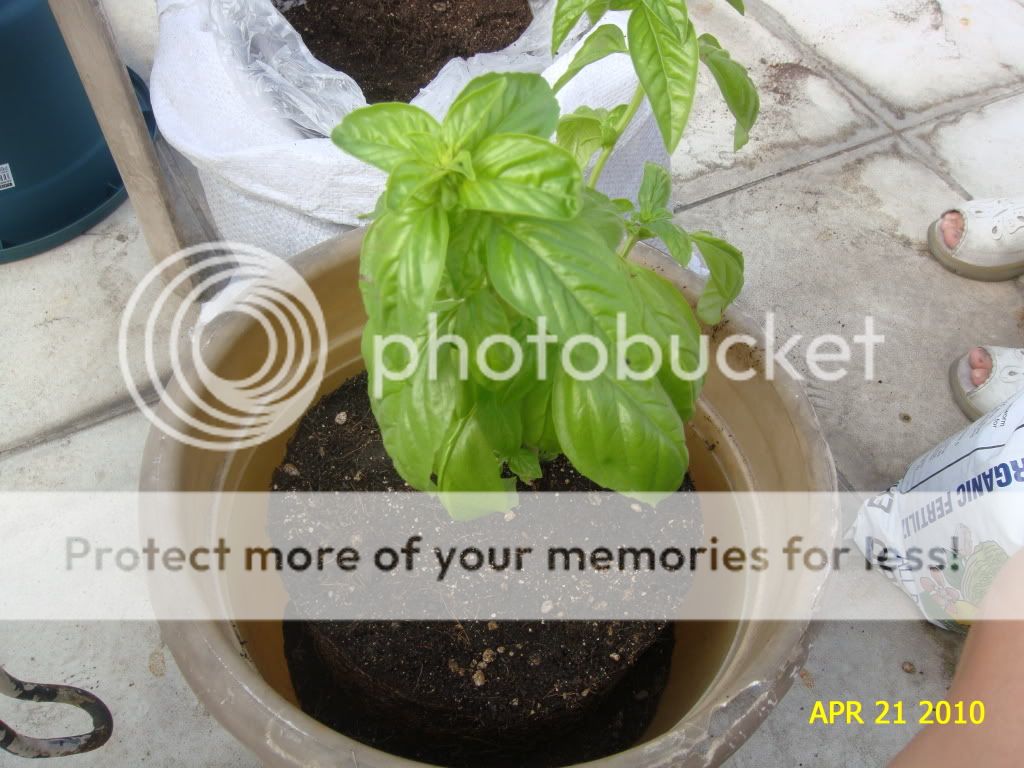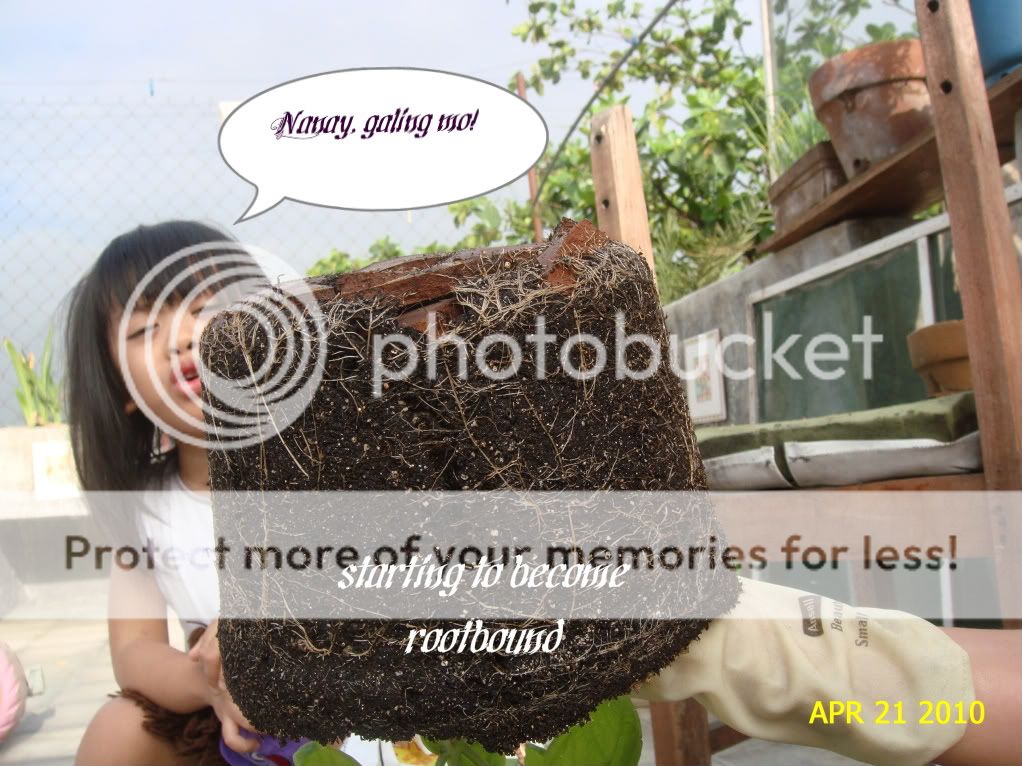My Daughter looking over as I work
The poor plant is starting to become root-bound. The roots are starting to go through the container holes, passing the broken terracotta pots that I placed at the bottom. When I removed the terracotta pieces, the roots started to fan out. Since I do not have the proper feed to promote root growth, I decided not to cut down the roots. I already cut them once; I dare not do it again in the absence of any root medication. It is very much ideal to cut down the ends of the roots and promote root growth with fertilizer that is weak in nitrogen but moderately high in phosphorus and potassium.
 I picked a container that is about 8 inches in size, the smallest optimal size for growing basil in containers. I lined the bottom again with broken terracotta pots and placed 3 inches of potting soil at the bottom. It would have been ideal to place 2 inches of soil and an inch of compost at the bottom, giving the soil a light, but firm push as you go (tamping). Place the plant on the soil and check to see if the top level of the soil of your plant is 2 inches below the lip of the pot. I had to make it 3 inches below to make room for the earthworm castings that I bought in my local garden store. Gradually fill the container with soil around at the side, firming it down to make sure that your soil will not recede every time you water your plants.
I picked a container that is about 8 inches in size, the smallest optimal size for growing basil in containers. I lined the bottom again with broken terracotta pots and placed 3 inches of potting soil at the bottom. It would have been ideal to place 2 inches of soil and an inch of compost at the bottom, giving the soil a light, but firm push as you go (tamping). Place the plant on the soil and check to see if the top level of the soil of your plant is 2 inches below the lip of the pot. I had to make it 3 inches below to make room for the earthworm castings that I bought in my local garden store. Gradually fill the container with soil around at the side, firming it down to make sure that your soil will not recede every time you water your plants.
The instructions for my worm castings were to place an inch on the top of the soil, carefully mixing the top soil with the castings in order not to damage the shallow tap roots of my basil. I watered the pot until water flows through the drainage holes. A gardening staff told me that you must water plants immediately after transplanting for the roots has been disturbed.
It is important to inspect the roots of your basil every once in a while. Basil can have aggressive root growth, and you will need to repot every once in a while to prevent it from getting rootbound.






nice one ate :))
ReplyDeletelove it!!!